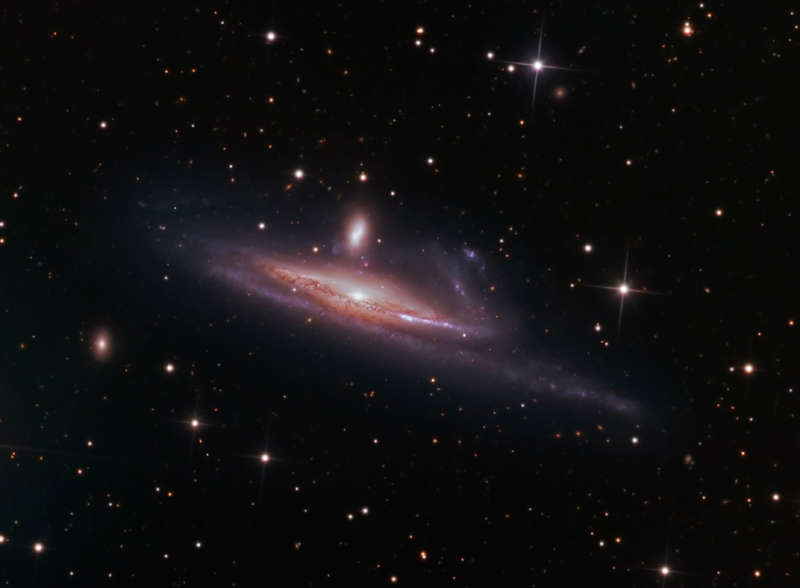Credit & Copyright: Martin Pugh
Explanation:
Large galaxies grow by eating small ones.
Even our own galaxy practices
galactic cannibalism,
absorbing small galaxies that get too close and
are captured by
the Milky Way's gravity.
In fact, the practice is common in the universe and
illustrated by this striking pair of interacting galaxies
from the banks of the southern constellation
Eridanus
(The River).
Located over 50 million light years away,
the large, distorted spiral NGC 1532 is seen locked in a
gravitational
struggle with dwarf galaxy NGC 1531, a struggle the smaller galaxy
will eventually lose.
Seen edge-on, spiral NGC 1532 spans about 100,000 light-years.
Nicely detailed in this sharp image, the
NGC 1532/1531 pair is thought to be similar
to the well-studied system of face-on spiral and small companion
known as M51.
1999 2000 2001 2002 2003 2004 2005 2006 2007 2008 2009 2010 2011 2012 2013 2014 2015 2016 2017 2018 2019 2020 2021 2022 2023 2024 2025 |
Январь Февраль Март Апрель Май Июнь Июль Август Сентябрь Октябрь Ноябрь Декабрь |
NASA Web Site Statements, Warnings, and Disclaimers
NASA Official: Jay Norris. Specific rights apply.
A service of: LHEA at NASA / GSFC
& Michigan Tech. U.
|
Публикации с ключевыми словами:
interacting galaxies - merging galaxies - взаимодействующие галактики - гравитационное притяжение
Публикации со словами: interacting galaxies - merging galaxies - взаимодействующие галактики - гравитационное притяжение | |
См. также:
Все публикации на ту же тему >> | |
Мнение читателя [1]
